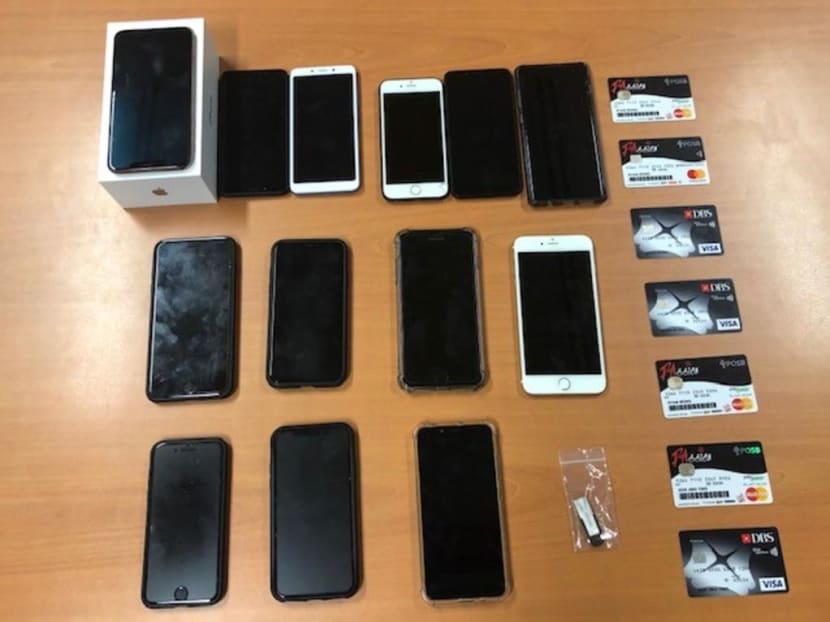Youth gets reformative training for masterminding S$26,000 GrabHitch scam
SINGAPORE — A 20-year-old was sentenced on Tuesday (July 28) to a minimum of six months’ reformative training for defrauding ride-hailing firm Grab by coming up with a scheme to exploit its booking and payment system.

The court heard that Ryan Wong Wei Zhi and his friend controlled 24 riders’ accounts and eight drivers’ accounts in their attempts to defraud Grab, using debit cards linked to an empty bank account to pull off their scheme.
- Ryan Wong Wei Zhi will have to serve at least six months of reformative training
- He and his childhood friend got 15 other people to take part in the scam to cheat Grab
- They controlled 28 riders’ accounts and eight drivers’ accounts
SINGAPORE — A 20-year-old was sentenced on Tuesday (July 28) to a minimum of six months’ reformative training for defrauding ride-hailing firm Grab by coming up with a scheme to exploit its booking and payment system.
Ryan Wong Wei Zhi pleaded guilty last month to conspiring to cheat GrabTaxi Holdings, which owns the GrabHitch carpooling service.
Wong and another young man had recruited 15 other people to make money off GrabHitch, using a debit card linked to an empty bank account to pull off their scheme.They managed to cheat Grab of S$26,115 before the firm discovered what was happening.
Deputy Public Prosecutor Phoebe Leau told the court that probation was not recommended for Wong, but did not state the reasons why.
He was allowed to begin serving his sentence on Aug 4 after asking to spend some time with his mother and younger brother.
Reformative training — a regimented rehabilitation programme for offenders under the age of 21 who commit relatively serious crimes — is a harsher punishment than probation, which allows young offenders to continue with their education or employment while serving their sentences.
Offenders are given a minimum period that is subject to how they respond to the rehabilitation.
THE CASE
The court previously heard that Wong was serving his National Service at the time when he carried out the scam.
Along with him, two others were charged for their roles in the scheme — his childhood friend Chua Wei Beng, as well as full-time national serviceman Kenneth Ho Hong Wei, whom Wong met while they were both stationed at Selarang Camp. Their cases are still pending.
Around January last year, Wong realised that he could take advantage of a loophole in Grab’s system.
When Grab charged a rider’s debit card that had no money in the account, Grab would not get the payment but it would still pay the driver who completed the ride his earnings, which went into the driver’s account.
In early February last year, Wong asked Chua to join in the scheme. Chua allegedly agreed and offered his driver’s account, after which they agreed to split their profits equally.
However, they soon realised that it was not profitable enough. Each driver could make just two trips a day and earn a maximum of S$144 daily.
Chua then allegedly invited Ho to take part in their plan. Ho was to recruit more participants and get S$300 every week for that.
By April last year, 17 youths were part of the scam. The others besides the trio were typically promised weekly commissions of S$300 to S$400.
In total, Wong and Chua controlled 24 riders’ accounts and eight drivers’ accounts. The other participants controlled another five drivers’ accounts.
The court further heard that between March and April last year, Wong and Chua made a total of 2,321 fraudulent ride bookings.
Grab was tricked into believing that 1,758 of them were genuine and paid out S$26,115. Wong and Chua split most of the sum equally between them.
The bookings were all under the names of seven fictitious passengers and for the same routes.
Wong applied for five debit cards, linked them to his bank account — which had insufficient funds at the time — and used them to make the bookings.
Around March 30 last year, Grab discovered the fraudulent rides and deactivated the 13 drivers’ accounts.
When investigations were ongoing in May last year, Wong, Chua and Ho met to discuss if they could execute a similar scam on ride-hailing firm Go-Jek’s mobile application.
However, their plans were dashed a few days later when police officers from the Commercial Affairs Department called them in for questioning.
Wong has not made restitution to Grab.








